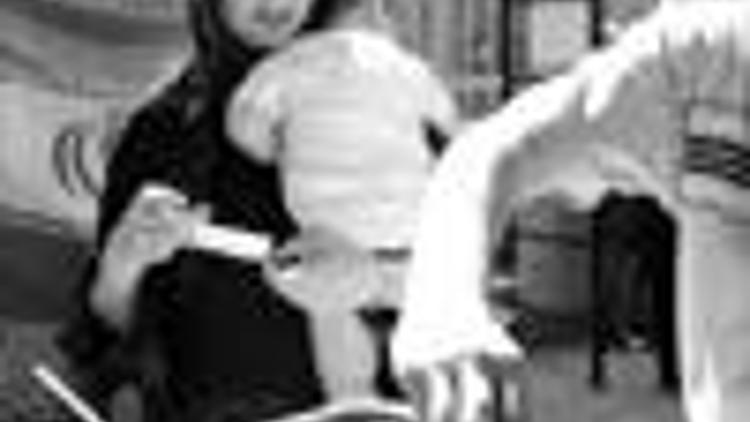Casting a vote for Iran’s freedom
Güncelleme Tarihi:

ISTANBUL - As Iranians living in Ankara poured into the special polling booth Friday to elect their country’s next president, both conservatives and liberals expressed their wishes for freedom no matter who won the vote.
Incumbent hardliner Mahmoud Ahmadinejad and moderate Mir Hossein Mousavi are the top candidates in the Iranian election."It is not yet clear who will win, but whoever wins, I want freedom to gain for Iran’s future," Mahyar Yosef, a student, told the Hürriyet Daily News & Economic Review. �
Former Prime Minister Mousavi is challenging Ahmadinejad, who was elected in 2005 for a four-year term. Although conservative and reformist Iranians’ understandings of freedom differ, all are united with the wish that the next president should improve lives in all spheres, including the economy and education.
"I think Mousavi will win. He is respected by all," said Ali, another student. "There is no freedom in Iran at present. You are free until you express your opinion." "We want freedom in the framework of Islam, not like the one in Europe," B.T., a 37-year-old chador-clad housewife, told the Daily News.
"No matter if Mr. Ahmadinejad or Mr. Mousavi wins, this is the decision of the Iranians, which need to be respected."
An estimated 2,000 Iranians are living in Turkey, 1,200 of them students. As Friday’s vote saw a record turnout among 46.2 million voters throughout Iran, participation was also high in Ankara. "The number of Iranians voting in Ankara was 550 in the last election [2005], but this time I think it will be more than 1,000," Iranian Ambassador to Turkey Bahman Hussein Pour told the Daily News after voting at the Iranian School in Ankara.
He thanked the Turkish government for establishing a full-fledged polling system, taking care of the voters and providing good coordination. Pour emphasized that the election campaign, which included face-to-face interviews with the candidates in contrast to past practices, and an all-out mobilization in society led to strong turnout. "I hope the election results will help Iran better its economy and its relations with the world," said Cafer Pişcenk, an Iranian student.
Ahmadinejad’s sharp rhetoric has isolated Iran from the West under his four-year rule, while he has come under fire at home over the economic crisis. "The 2005 elections were the worst in Iran. Ahmadinejad is not a good president," said Mohammed Mahbab, 45. "Even when there was war between Iran and Iraq, the situation was much better than now. We need complete democracy, jobs, decent education and living standards," he said. "I cannot travel to many countries with my passport because I am Iranian, because my passport is Iranian. Iranian people are isolated because of the bad politics. I want to be rid of this isolation and communicate with other parts of the world."
Iranian teacher Fereshte, 25, said the strong turnout in the elections was a very big message to the current government. "I am totally against the policies of our current president. I think that he has led our country into a crisis. I totally disagree with the current policies in all areas. We just go down instead of improving," she said. "As far as I know, most of the Iranian youth and students think the way I do."
Iran wants action
Pour said the words of U.S. President Barack Obama offering Tehran a new beginning were good, but added that words were not enough. Pour said it was the U.S. that had cut ties with Iran, reiterating words alone would not be enough to "have a normal relationship with a country, which you have not had for 30 years."

